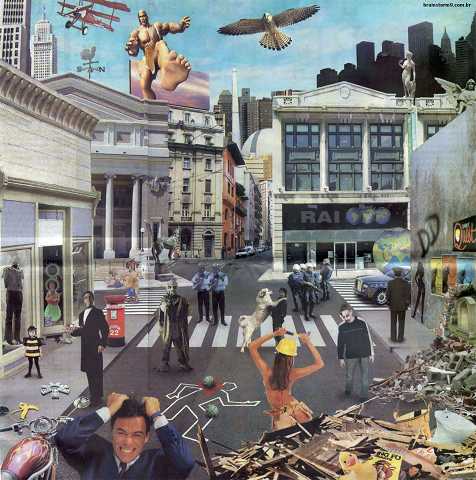DRM is:
Digital Rights Management (Whose rights?)
Digital Restrictions Management (It certainly restrits me from doing what I want with my own property.)
Digital Rights Mismanagement (Now we’re talking about my rights – but not my management.)
Disastrous Rootkit Mistake (Indeed!)
Digital Restraining Methods (That’s the whole point, right?)
Delibrately Ruined Music (The reality.)
Dense, Retarded Mindset (Just to sum it up.)
With the continuing saga of the Sony Rootkit blunder going the rounds on internet and other media, DRM is being scrutinised again. But, what is DRM?
No matter which words we’d like to substitute the letters in DRM with, it’s all about one thing: Control. Not protection from piracy, but control – a lot of control. First of all, it’s control over competitors: If you can control which equipment your music can be played on, or ripped to, you can prevent your customers from using your competitors equipment, be it CD players, mp3 players or whatever. And what do we get then? “You can’t rip our CDs to your mp3 player from our competitor? Too bad – you’d better ask our competitor to fix their stuff then.” Replace relevant words and passages with Sony, iPod and Apple, if you like.
Fun isn’t it, to have to take into consideration which music player you can play which music on? Following the above aspect of DRM to its end, we’d have to buy different equipment to play music from the different providers – and we don’t need too much of an imagination to see how this will be: It’s here already! Buy music from iTunes, and you need an iPod. Buy from a different music store, which provides DRM’ed music in WMA format, and you need a different player. And so on.
Technically, there’s nothing in the way of it all being playable in all players – but there are obstacles put in the way for you and for the competitors. But that’s not all – when you’ve got the music, you’re not allowed to do all what you might like with it. Different DRM schemes varies, restricting you in different ways. You may discover that you can’t make a backup of your music files, that you can’t mix your own party CDs, can’t play in the car stereo, or brand new home entertainment studio – if you’re real unlucky your equipment may even be damaged – sharing with friends are out of question of course, and – well.
What happened to our rights as consumers? They’re soon gone, if this continue. Who will benefit from this? After all, it’s all justified with the artists and how they risk being deprived of their income if there’s no DRM, as otherwise they would be pirated rampantly.
Not all artists see it this way; more and more feel that pissing off their fans – who don’t like DRM – is worse than letting more people learn about their music through sharing for free. Several studies have shown that this usually is an advantage for the artists, and that the sharers buy more music, not less. And artists have experienced renewed interest in their older albums from new fans, due to the sharing.
The exception seems to be the top artists that are heaviy marketed by the music companies.
So if it’s not the artists that benefit from DRM, it may be the record companies? Many seem to think so, and that DRM is a way to hold off the inevitable change that the internet and broadband has brought about, so they can keep their current business model. DRM may help for a while, at the expense of us – the consumers. Because as we see, DRM is a way to let others make decisions on our behalf about what we can do with what we buy (not just music, even if that’s the example here.)
So, what can we do about it? There are two alternatives:
- If having others control what you can do with what you’ve bought and own, by all means, buy DRM’ed music and other DRM’ed stuff; e-books, films, and more. This is saying “I don’t mind transferring control over my stuff to you, and pay you for it.”
- If you want to decide for yourself what you can do with your stuff, don’t buy into DRM. It can be hard if your favourite artists are released with DRM, but maybe it would help writing to those artists, saying you won’t buy their albums if they’re DRM’ed? Artists want people to buy and enjoy their albums, not alienate them and turn them away. Previously DRM’ed albums may be rereleased without DRM – I believe this happened with Switchfoot.
Personally, I’m going with the second option.


